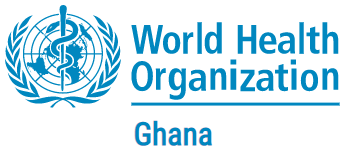The COVID-19 pandemic underscored the importance of communities as foundational bedrock for dealing with public health emergencies. Countries need to regularly assess their operational readiness of preparedness activities, especially at the community level to detect and respond to outbreaks of epidemic and pandemic potential more effectively.
In Ghana, a three (3) day community readiness simulation exercise, co-organized by the Ministry of Health, Ghana, the World Health Organization, and the UK Public Health Rapid Support Team (UK-PHRST), an innovative partnership between the UK Health Security Agency and the London School of Hygiene&Tropical Medicine (LSHTM), brought together stakeholders from health, local government, disaster management, animal and environment sectors, drawn from the Eastern region of Ghana to test communities’ preparedness and emergency procedures and response plans.
In his opening remarks, the WHO Representative to Ghana, Prof. Francis Kasolo underscored the role of communities in the prevention, preparedness, and response to any type of emergency, regardless of the hazard. He, therefore emphasised the need to strengthen and drive resources in communities towards effective outbreaks response.
“We must ensure that the capacities and resources are in place at the community level for early detection and containment of health emergencies,” Prof. Francis Kasolo stated.
The community readiness simulation exercise was aimed at enabling stakeholders to identify strengths, gaps and reflect on priorities that will help strengthen communities’ readiness, working with the health workforce to detect, notify and respond to public health threats before they escalate.
On her part, Dr Claire Bayntun, UK-PHRST Head of Capacity Strengthening said, “We are delighted to be part of this exciting collaboration between the World Health Organization, the Ministry of Health in Ghana and other partners. We have contributed our technical expertise to this tabletop simulation exercise which will ultimately help local communities be better prepared for outbreaks in the future.
The outcome of this exercise will not only benefit Ghana – the learnings will also be relevant for the public health responses for communities in many other countries.”
Speaking on behalf of the Director General of the Ghana Health Service, Dr. Franklin Aseidu-Bekoe, reiterated the need to leverage community resources and expertise to mitigate potential health risks.
“Communities self-¬ mobilize in response to crisis and contribute important expertise and knowledge about what works at the local level. Partnering with affected communities before and during an emergency can leverage these strengths, to better protect lives and livelihoods during a health emergency” said Dr. Aseidu-Bekoe, Director of Public Health
Stakeholders at the three-day tabletop exercise emphasised the need for sustained community involvement to ensure informed, engaged, and empowered communities during, before and after health emergencies.
“We need to continually engage and provide key community actors with the necessary information, so they help health actors address emergencies in a timely manner said”, Genevieve Dakurah, a midwife-Incharge, Kweakese CHPS, Akwaku Afram Plains North district.
The exercise, the first to be conducted in Ghana brought together 65 participants from three (3) communities across two districts in the Eastern Region. Participants were taken through a series of scenarios designed to assess community readiness to possible health outbreaks. The outcome will provide useful information to inform the WHO Community Readiness Checklist, including transferable lessons for other communities and countries.
Distributed by APO Group on behalf of World Health Organization (WHO), Ghana.

